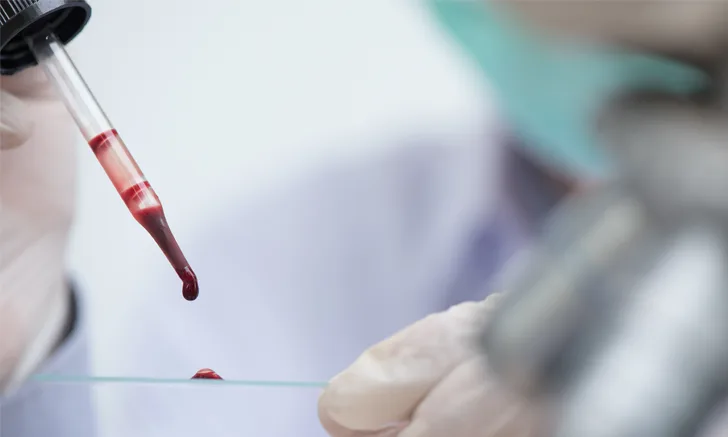
In the Literature
Herter L, Weingart C, Merten N, Bock N, Merle R, Kohn B. Alloimmunization in dogs after transfusion: a serial cross-match study. J Vet Intern Med. 2022;36(5):1660-1668. doi:10.1111/jvim.16521
The Research …
Transfusion reactions can vary from mild and self-limiting to severe and fatal. Reported rates of reactions and complications range from 0% to 38%.1,2 Current recommendations include blood typing of all donors and recipients of type-specific blood, as well as performing a major crossmatch for recipients ≥4 days posttransfusion.1
This prospective study investigated the frequency and time point at which dogs develop alloantibodies after transfusion. Twenty-one anemic dogs with no history of persistent erythrocyte agglutination or previous transfusions were crossmatched prior to transfusion of dog erythrocyte antigen (ie, DEA) 1-compatible packed RBCs. Major crossmatch was repeated posttransfusion on days 1, 2, 3, and 4, as well as between days 5 and 28 when possible.
All pretransfusion crossmatches were negative. No acute transfusion reactions were observed during the study. In total, 76% of the dogs developed a positive crossmatch following transfusion; 57% developed in ≤4 days, with one developing as early as 12 hours posttransfusion.
Results of this study emphasize the importance of using crossmatch-compatible blood, especially in patients with prior transfusion history. Transfusion of foreign antigen can result in elevated antibody titers in alloantibody-naive patients, leading to a decreased lifespan of transfused erythrocytes, delayed transfusion reactions, and increased risk for reaction at subsequent transfusions.3,4 Novel antigens (eg, Dal, Kai 1 and 2) have been identified in dogs with natural alloantibodies, and acute hemolytic transfusion reactions related to these antigens have been documented in transfusion-naive dogs.5,6 Point-of-care testing for these antigens is unavailable and clinical significance is unknown, further highlighting the importance of crossmatching recipients to donor blood products. Standard of care may need to be adjusted to include crossmatch prior to all transfusions, including in transfusion-naive dogs.
… The Takeaways
Key pearls to put into practice:
Crossmatching is typically performed only when initial transfusion occurred >4 days prior or transfusion history is unknown. Results from this study demonstrate alloantibody formation ≤4 days after transfusion, suggesting crossmatching should be performed prior to any subsequent transfusion.
Safe transfusion protocols, including standardized pretransfusion testing, transfusion administration, and monitoring protocols, are critical.
Blood typing and crossmatching with administration of type-specific and crossmatch-compatible blood is the standard of care. Efficient and reliable point-of-care tests for this purpose are widely available.
Transfusion stewardship includes donor screening, aseptic blood collection, clear and correct labeling of blood products, appropriate storage, pretransfusion testing, double-signature verification of transfusion products and recipients, and close monitoring of patients during and after transfusion.
You are reading 2-Minute Takeaways, a research summary resource presented by Clinician’s Brief. Clinician’s Brief does not conduct primary research.